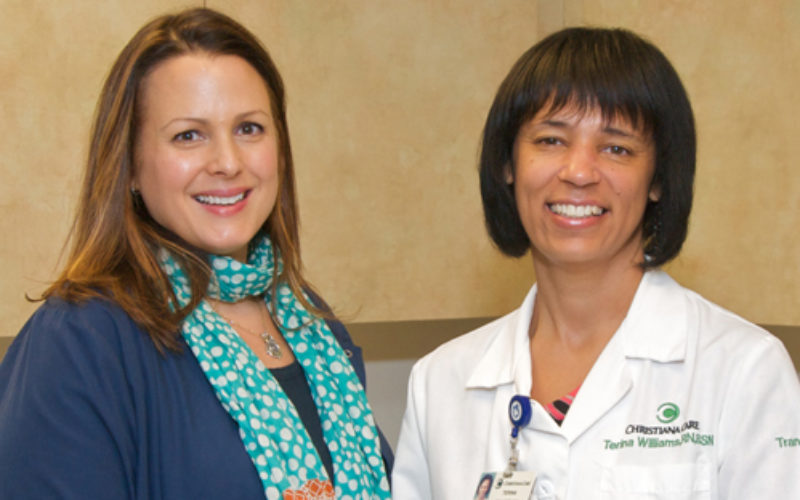Nurses collaborate to build a ‘bridge’ for renal transplant

The Christiana Care Visiting Nurse Association is helping to build a bridge for renal transplant patients, working with the health system’s Kidney Transplant Program to provide care, education and support in the critical first weeks after the patient goes home from the hospital.
Launched in August 2011, the program involves 12 nurses who will care for about 30 patients over the course of a year.
“It’s a small group of patients with highly specialized needs,” says Lynn C. Jones, VNA president and senior vice president of Post Acute Care Services.
Nurses from the Living with Cancer Program received special training in caring for transplant patients.
“Our oncology team was a good fit, because they are experienced in caring for immunosuppressed patients and patients on anti-rejection medication,” says Marge Harder, program director.
S. John Swanson III, M.D., chief of the Christiana Care Kidney Transplant Program, made an hour-long training video detailing the care for this patient population for the home-care nurses. In collaboration with the transplant team, the VNA created a day-to-day care plan with patient benchmarks, formulated on evidence-based guidelines.
Nurses begin home visits the day after the hospital discharges a patient and return every day for about two weeks, except on days when the patient goes to the transplant clinic at Christiana Hospital.
The nurses monitor patients for signs of rejection or infection. Nurses also verify that patients are following the established transplant protocols and provide follow-up education. Additionally, they are able to perform wound care, venipunctures, infusion therapy and identify other services that patients might need, such as in-home physical therapy.
“We are there to make things as seamless as possible for the patient,” Harder says. “The nurse becomes the eyes and ears of the physician.”
Nurses provide more than expert care. They spend time with patients and their loved ones during a crucial time, offering reassurance and information. “They provide the compassion and support that these patients and their families need,” she says.
Patients appreciate that additional layer of care, says Geri LiBetti, administrative director, Transplant and VAD Services. “The Transplant Program has received extremely positive feedback from patients on the VNA program,” LiBetti says.